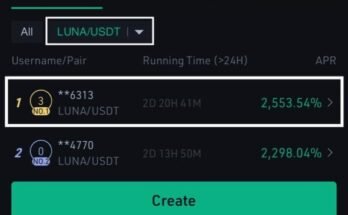Issues with cybersecurity are becoming critical across industries. Data security battles in several industries have already become more tense as a result.
By 2022, global spending on data breach risk management and information security is expected to exceed $172 billion. In 2020 and 2021, respectively, the total spending was $137 billion and $155 billion.
Thus, it is evident that spending on cybersecurity is increasing.
A Blockchain consulting firm can offer the ideal ways to bolster businesses’ data security during the struggle. The use of blockchain in cybersecurity is the ideal defense against dishonest hackers. One of the most revolutionary advancements in cybersecurity, it.
A business’s foundation can be upended by a successful cyberattack. One of the most secure systems for conducting transactions in the digital world has already been demonstrated by blockchain. Blockchain has been adopted by the finance sector to expedite operations while providing the highest level of security. The use of blockchain in cybersecurity has a huge potential to protect communications, data, and entire systems.
The technology serves as an efficient risk management and fraud-prevention tool since it excels at protecting information integrity.
Overview of Blockchain
- Blockchain is a decentralised database that keeps track of information about transactions made over a peer-to-peer network.
- Blocks that have been back-linked contain the transactions.
- These blocks continue to exist within a chain of cryptographically protected blocks.
- The transaction data is still secure and immutable within the blocks.
- Every transaction ever made by anyone on the blockchain network is visible to users of the network.
Three Types of Access to the Blockchain Network
1. Open Access Architecture Permissionless Access
This one is for users of the Ethereum and Bitcoin blockchain networks.
2. Open Access Architecture Permission-Required Access
This category includes networks with dependable users. Take Ripple, for instance.
3. Private Structure
- Private blockchain access is subject to constraints and restrictions.
- It permits just certain business networks.
- The membership is navigated by a single entity.
Thus, anyone can participate in public blockchains. It has no limitations on CPUs. Private blockchains, however, are difficult to join. In a private blockchain network, only certain users who utilize certificates are allowed to connect.
What’s the big deal about Blockchain Technology for Cybersecurity?
Companies all across the world have increased their digitization efforts and online offerings in response to digital transformation objectives. This rapid digitization advancement does, however, have a cost.
Cyber-Security Threats
In fact, there are more and more cyberthreats and attacks targeting financial services every day. Data and money from businesses are exploited. Companies must adopt blockchain for cybersecurity given the prevalence of data breaches in order to close security gaps and deter criminal activity.
Blockchain was initially created to give Bitcoin more power, but it didn’t take long for businesses to see the technology’s true potential. It has developed into a potential mitigating technique for keeping cybersecurity.
Every 14 seconds, a business falls victim to a ransomware attack.
Blockchain for cybersecurity always saves the day in these situations. Cybersecurity is a potential and important concern that is always addressed during blockchain development. Blockchain performs computing in a decentralised manner and saves corporate data in a trustworthy ledger. Consequently, it transforms traditional business methods.
Blockchain is a sophisticated piece of technology. Systems that run on blockchains have a variety of characteristics and capabilities. Some of its characteristics show to be very helpful for keeping cybersecurity.
Key Benefits of Blockchain for Cybersecurity Maintenance
Blockchain does all possible to protect businesses and other organizations from cyberattacks. The following are some potential ways that blockchain for cyber security can assist businesses in being fraud-free:
Decentralized Data Storage
Businesses gather a tonne of private information on their clients, their products, their feedback, etc. For hackers to pose a threat, all of these data appear tempting. Additionally, keeping all of these critical business data in one place tempts hackers to commit data breaches.
Companies usually choose centralised storage in addition to being concerned about data security to safeguard their corporate documents. But how is that possible?
Blockchain, by virtue of being decentralised, obstructs all avenues for cybercriminals. They are unable to uncover even one way to access the data. Blockchain therefore reduces cybercrime by obstructing hackers’ paths. Given this, an increasing number of enterprises are choosing blockchain to protect their data security.
An Unchangeable Digital Ledger
A select group of people can access the immutable digital ledger that is created by the blockchain system. The main goal of bitcoin wallet development is to store financial data like transactions. However, any financial information gathered can be stored in a distributed ledger on the blockchain. A digital ledger that cannot be changed has a lot of promise for use in keeping cybersecurity.
In this instance, we can use log files as an example. Hackers frequently alter log files to cover up the evidence of their attacks. Therefore, it becomes challenging for organizations to identify the offenders or the damage they have caused.
Hackers cannot fabricate bogus data because the blockchain is an immutable, distributed digital record that stores data in blocks. Data cannot even be removed from the records.
Making Private Messaging Secure
Yes, messaging systems use end-to-end encryptions to safeguard data. Blockchain, however, is welcomed by many organizations as an additional layer of security for their messaging data.
Consequently, creating a communications ecosystem that is protected by blockchain encourages innovation and reform. Blockchain encrypts all transaction-related data, enabling secure and open messaging across messaging providers.
Data Security and Authentication
The foundation of blockchain functioning is strong data integrity protection and data authentication. Blockchain was initially designed with storing financial data in mind. Therefore, people who make fictitious transactions or alter data after hacking are not tolerated by the blockchain system.
The blockchain system includes data authentication to each network node with a distributed and impenetrable ledger across a peer-to-peer network. It gives businesses reassurance that their data is secure and unaltered.
Additionally, blockchain helps firms validate the validity of data through the use of digital signatures.
Systems for data authentication and integrity checking are essential for every industry, including cyber security. For maintaining data security, authentication, and integrity, blockchain for cybersecurity appears to be quite advantage
In Conclusion
The negative aspect of technical developments is cybercrime. Blockchain for cybersecurity has the potential to completely alter how businesses are started and run. In that instance, blockchain consulting services can help businesses use blockchain technology.
In conclusion, blockchain is crucial for every organization on the planet, especially in light of the rise of harmful hackers. It can increase the security of financial transactions, contracts, and valuables.




